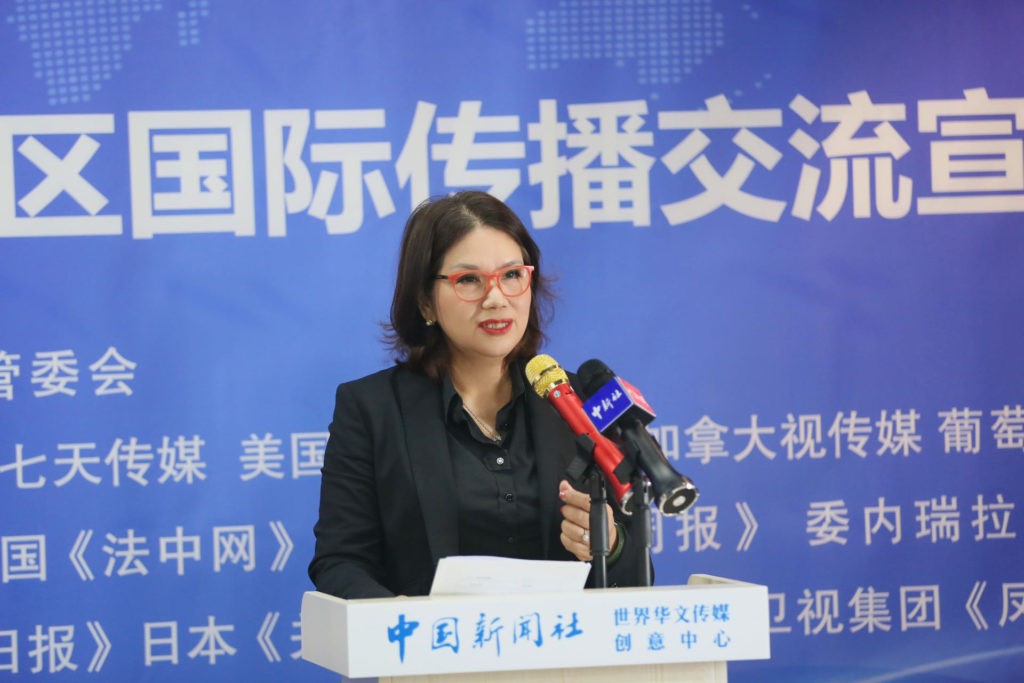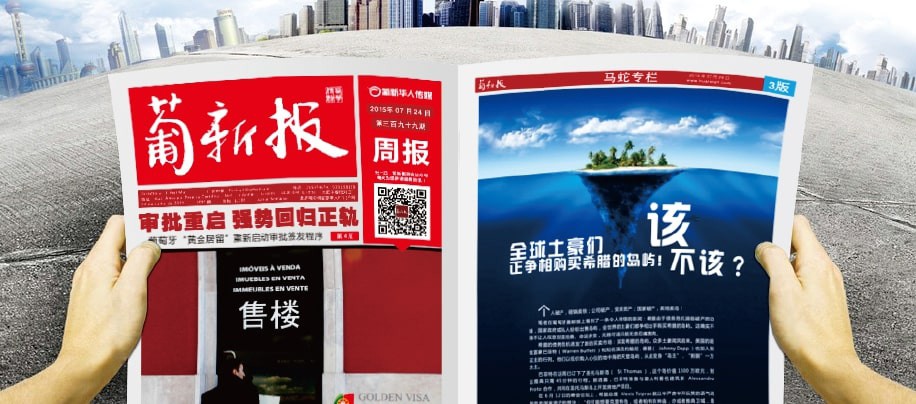Described as the oldest Chinese language newspaper still active in Portugal, the newspaper has continued to provide information about the country to the Chinese community inside and outside Portugal for more than 15 years. To PLATAFORMA, its founder and director, Ma Li, describes the progress of the publication and its editorial line, and her experience as a Chinese journalist in Portugal.

-Could you describe a little about your professional experience before founding Puxin?
Ma Li- I am from Guangzhou and came to Portugal in 1999, I have been living here for almost 25 years. I founded the Puxin newspaper in 2005. When I arrived in 1999 I came to help my family. In 2002 I opened a store, and in 2004 I started writing some articles for a Chinese language newspaper based in Spain. In 2005 I then decided to start a Chinese language newspaper in Portugal.
-Why?
M.L.- I saw that there was a need for a Chinese language publication for the community in Portugal. In 2005, there was not so much information available or so many means of communication that the Chinese in the country could use to get news. Whether it was news about the relations between Portugal and China or just about China. The history of Chinese immigration in Portugal is not very old, so there are still many Chinese in Portugal who do not know well their rights as residents. Puxin provides not only news about China, but also about the rights that Chinese immigrants have in the country.
-How has the newspaper evolved from 2005 to now?
M.L.- There have been big changes since 2005, in the beginning Puxin was a weekly newspaper with 52 pages. The Chinese in the country at the time liked to have the newspaper in their stores and read as much information as possible for the community. Now Puxin is a purely digital media outlet, and only publishes a print edition when there is news or special events. Currently we publish a lot of news daily on 45 digital platforms, including WeChat, Facebook, Twitter or on our website. We publish more than 100 articles a day, including news from various cities in China, and three translated news articles about Portugal.
M.L. – How many journalists does the newspaper currently have?
M.L.– We have four journalists in Portugal and one journalist in China. We used to have an office in Beijing, but it was a complicated process, so we only have one correspondent there. The journalists are always changing, but our journalists are always able to speak Portuguese. They are usually Chinese students completing their master’s or doctoral degrees in Portugal.
-What are the biggest difficulties for a Chinese newspaper in Portugal?
M.L.- There are many difficulties. First, nowadays there are fewer and fewer printed newspapers in Europe, the costs are very high. Language is also an obstacle, there are not so many people in Europe who read Chinese. Second, I think that in Portugal there is a certain distance between Chinese media journalists and Portuguese society, especially with the Portuguese government. We don’t have enough readers to support our publication, since there are only about 30 or 40 thousand Chinese living in Portugal. To survive we establish many collaborations with entities in China. In the old days we had about 20 to 30 Chinese businesses buying advertising in the newspaper, but not nowadays. There are too many media where the community can find news or information, so we have less and less advertising. We try to collaborate with more Portuguese merchants.

-What do you mean by the distance to the Portuguese government?
M.L.- Currently, Puxin journalists can have a journalist card in Portugal, but there is a lot of bureaucracy and the renewal process is very long. We have not been able to renew those cards yet. Chinese journalists are also not often invited to events organized by the Portuguese government. It is difficult for us to follow these activities. I believe that in China, when the Government organizes an event, foreign journalists are always invited. This causes many difficulties for Chinese journalists working in Portugal.
-What kind of news is of more interest to the Chinese community in Portugal?
M.L.- Usually the essential information for any Chinese living in Portugal, such as their current rights, new rights, new government policies, about gold visas, taxes, etc.
-What kind of collaborations do you seek to establish with entities in China?
M.L.- The collaboration with Chinese entities does not have so much to do with publicity, but to allow me to go to China to write or report on various subjects. We are often invited to report on the changes in China in recent years. As far as advertising deals are concerned, it is difficult, there are not many Chinese in Portugal and those who live here can find a lot of information online, through WeChat groups.
-How do you see the way China is reported in the media in Portugal?
M.L.- I think that the Chinese government usually treats the Portuguese media with sympathy. I once spoke with the Portuguese ambassador to China and he shared my opinion. The relationship between Portugal and China is very old, more than 500 years. Some Western countries don’t really understand China and the changes that have occurred in the country. I have visited the country many times over time, and I have always noticed a great development. I hope that some Western countries can have a less aggressive attitude towards China, and that they will start from a more collaborative perspective. The most important thing is the happiness of all people, and I hope that the Chinese community in Portugal will help the two countries to find common points of view. China’s attitude towards Portugal, or the European countries, has always been one of sympathy. Portugal is the country in Europe that best understands China, thanks to Macau.



